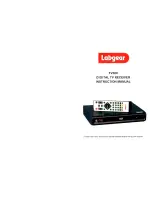
Physical Components
2-3
Cabling Terms
Strand
A strand is a metal or glass (in the case of fiber optics) transmission media that is
typically surrounded by an insulator. Strands in metallic cables may be made up
of either solid lengths of relatively thick wire (solid core) or a bundle of much
thinner wires that contact one another throughout the wire (stranded).
Insulator
An insulator is a layer of non-conductive material that protects the core or strands
of a cable from both physical damage and from the effects of other strands within
a multistranded cable. Insulator also protects the strands or core from the effects
of external electrical noise to a small extent.
Shield
A shield is a layer of metal foil or braided screen that protects the core or strands
of the cable from interference from outside electrical influences. The shield is
wrapped around the core, and is separated from the core by a layer of insulator.
Gauge
The gauge of a wire is an indication of its thickness. Gauge is typically measured
in American Wire Gauge (AWG). The lower the AWG number of a strand or core,
the thicker it is. The gauge of a wire has an affect on the resistance it presents to
electrical signals attempting to travel through it. In general, lower-gauge (thicker)
strands allow network communications to travel through them more readily than
strands with a higher gauge.
Connector
A connector is a metal, plastic, or composite assembly that is used to simplify the
connection of separate lengths of cable or to connect cables to devices. Connectors
are only found on cables (ports are located on devices). The terms that follow
define important parts of connectors.
Summary of Contents for 100BASE-FX
Page 1: ...Cabletron Systems Cabling Guide...
Page 2: ......
Page 4: ...Notice ii...
Page 22: ...Cabling Terms 2 8 Test Characteristics...
Page 54: ...Ethernet Media 4 30 Connector Types...
Page 72: ...Full Duplex Ethernet Network Requirements 6 8 Ethernet FOIRL Single Mode...
Page 80: ...Fast Ethernet Network Requirements 7 8 Hybrid Installations...
Page 130: ...FDDI Media 11 16 Connector Types...
Page 136: ...FDDI Network Requirements 12 6 TP PMD STP...
Page 170: ...Connecting and Terminating 14 20 FDDI...
Page 192: ...Index 4...
















































